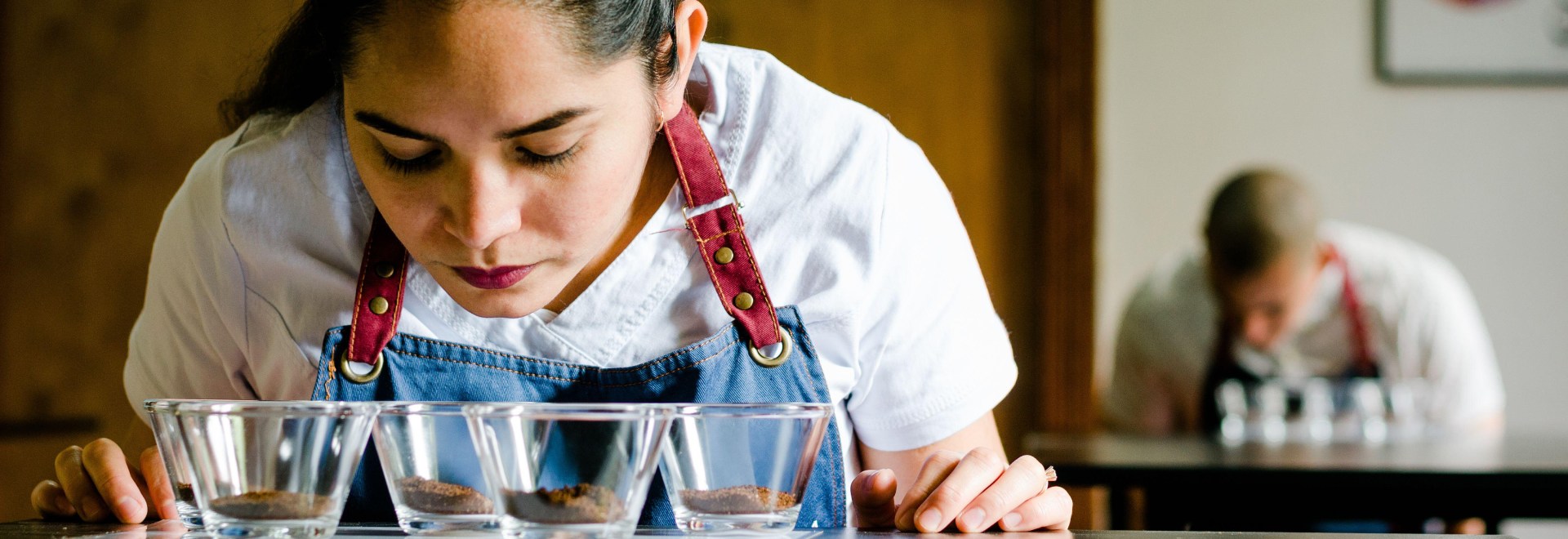Is the World Barista Championship too expensive?
Barista trainer and 2021 WBC finalist, Wojciech Tysler, speaks to Imogen Rose Phillips about the cost of competing at the prestigious event and how it can impact participation.
In the 22 years since its inception, the World Barista Championship (WBC) has gained vast prestige and notoriety within the global coffee community.
The former because of the many doors the WBC title can open; the latter because of the high costs involved in training for and participating in the event.
A financial divide that is laid bare in the rankings: of the past 21 winners, only three have been from developing countries.
To even be able to enter, is an extraordinary achievement, one which requires time, money, and access to the highest quality specialist products.
Not to mention the cost of travelling to the event, accommodation, transport, and all the ingredients and equipment needed to compete.
But, as Wojciech Tysler, a finalist in last year’s WBC notes; “It opens a lot of doors, but we have to keep in mind that baristas who are just starting their adventure with coffee are getting inspired by us”.
The Rules & Regulations for this year’s competition to be held in Melbourne, Australia, state that World Coffee Events (WCE) “shall not be liable for any competitor expense under any circumstance”.
And while this may hold true for many competitions, the question does arise: if the goal of the WBC is to “focus on promoting excellence in coffee, advancing the barista profession, and engaging a worldwide audience”, should the playing field not be levelled and all participating baristas given access to the same quality coffee and the latest tech and equipment?
How much does it cost?
As 2018’s World Barista Champion, and the first female winner, Agnieszka Rojewska is no stranger to breaking boundaries.
Her win, she told New Ground, has “‘inspired a lot of other women to compete”.
No doubt Agnieszka experienced an uphill climb to championship status, and she has been vocal about the cost involved in competing. Specifically, she says, the high cost of ingredients required to practise and perform on the day.
Take for instance the ingredients used by last year’s champion, Diego Campos – it included coffee from Finca Inmaculada in Colombia (whose premium coffee costs $70 for 250g) and milk imported from Italy.
Another key ingredient, milk, too, is a huge cost, especially for baristas in some Middle Eastern and Asian countries. In Lebanon, for instance, one litre of milk costs $4.80, compared to $1.84 in the US.
Earlier this year Agnieszka, who is self-funded, was once again struck by the high costs involved when she had to choose between a once-in-a-lifetime trip to Alaska and participating in another prestigious competition, Coffee in Good Spirits. “Coffee In Good Spirits won,” she said.
Luckily, so too did Agnieszka, who was named the 2022 winner.
As the worldwide interest in coffee grows, the standards for its specialists become ever higher. Competitors are expected to visit the country of their chosen coffee’s origin, and as worldwide coffee knowledge expands, there is added pressure to find unusual, previously undiscovered coffee.
That’s even more travel and accommodation costs, not to mention the time most have to take off work.
Wojciech was lucky, he says, in that he received a sponsorship from Bewley’s, Ireland’s leading tea and coffee company. “It was an honour to represent Ireland”, he shared, “they always looked after me, they financially covered all the gear that I needed to compete”.
Is it unfair?
While the costs associated with competing are high (as they are for most competitions), it is clear that these costs are, in large part, driven by geography.
Participants, such as Diego, who hail from coffee-producing countries have a clear advantage – they are closer to the source and can discover and experiment a great deal with the bean and process, and purchase coffee at a competitive price.
Whereas others may have access to cheaper milk or equipment, or may not need to travel great distances to compete.
The question at the heart of the competition, however, according to 2022’s WBC is: ‘In a café environment, would this barista have inspired me about specialty coffee?’ via their technique, service skills, passion and role-model status.
It is important to note that the desirable attributes participants are being judged on relate to the delivery of service. In other words, it is a competition to find the world’s best barista, not the world’s best coffee.
All these must be shown in an incredibly high-pressure environment, broadcast to the community worldwide and for a number of competitors in a language that is not their mother tongue.
The judging process is subjective, given that it relies upon both the taste of each judge and their perception of the competitor in front of them. In this sense, it functions more like an elaborate interview, than a sports-style competition.
With this in mind, would it not be to everyone’s advantage to level the playing field and fully or partially fund participants in the championship so that a more diverse group of truly gifted baristas can participate and not only the ones who can afford it?
As Wojciech notes; ‘Continuing the WBC is important for the coffee community, as all the baristas bring new innovations, new coffees and new processes to the stage’.
For him, it is an important source of incentive and about ‘always bringing the standards up, building self-confidence, knowledge.”







